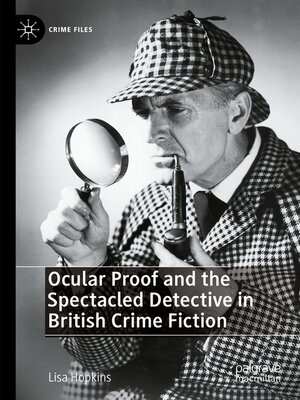Ocular Proof and the Spectacled Detective in British Crime Fiction
ebook ∣ Crime Files
By Lisa Hopkins

Sign up to save your library
With an OverDrive account, you can save your favorite libraries for at-a-glance information about availability. Find out more about OverDrive accounts.
Find this title in Libby, the library reading app by OverDrive.



Search for a digital library with this title
Title found at these libraries:
| Loading... |
From Sherlock Holmes onwards, fictional detectives use lenses: Ocular Proof and the Spectacled Detective in British Crime Fiction argues that these visual aids are metaphors for ways of seeing, and that they help us to understand not only individual detectives' methods but also the kinds of cultural work detective fiction may do. It is sometimes regarded as a socially conservative form, and certainly the enduring popularity of 'Golden Age' writers such as Christie, Sayers, Allingham and Marsh implies a strong element of nostalgia in the appeal of the genre. The emphasis on visual aids, however, suggests that solving crime is not a simple matter of uncovering truth but a complex, sophisticated and inherently subjective process, and thus challenges any sense of comforting certainties. Moreover, the value of eye-witness testimony is often troubled in detective fiction by use of the phrase 'the ocular proof', whose origin in Shakespeare's Othello reminds usthat Othello is manipulated by Iago into misinterpreting what he sees. The act of seeing thus comes to seem ideological and provisional, and Lisa Hopkins argues that the kind of visual aid selected by each detective is an index of his particular propensities and biases.






